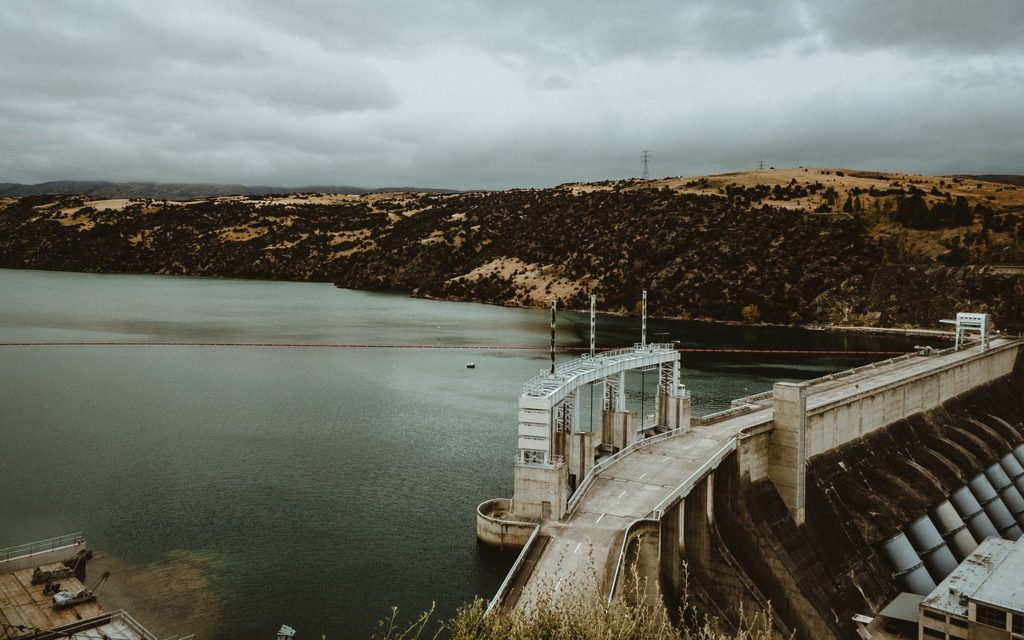Should individuals be responsible for fighting climate breakdown?
We have 12 years to limit global temperature increase or face widespread catastrophe. But who is responsible for making changes?
The world is at a crossroads. After the IPCC report told us what we all suspected — that climate breakdown is a problem we must address right now — it’s time to take action.
We need to burn fewer fossil fuels, invest in renewable energy and kick our addiction to single-use plastics. (And that’s just to name a few of the dozens of things our planet needs from us.)
But whose responsibility is it?
Should we rely on individuals? Corporations? Governing bodies? It’s an important question and one we have a few thoughts on. Let’s get into it.

The power of individual responsibility
You’re just one human being, but you’re powerful in so many ways — from choosing which brands you support to making a conscious decision on how to travel. Where you choose to put your money is one huge way that you can have an impact on the future of the planet.
Not everyone has the luxury to buy (often pricier) eco-friendly products, and we wouldn’t condemn anyone who lacks the resources to do so. But for those who can choose, buying ethically is an important way to show your desire to change.
And beyond purchasing power, there are ways to have an impact. Having frank discussions with those around you — friends, family, co-workers — can lead to exponential change.

As a personal example, I was a vegetarian when I went to university. Within a few months — and without talking down to anyone — four of my hallmates stopped eating meat. Just the acts of talking, sharing resources and answering questions had a huge effect on the people around me.
So if you’re choosing to reduce your plastic consumption, bring it up to your loved ones. They might be intrigued, and they may follow suit.
When people power isn’t enough
When people lack access to green alternatives, it’s time for others to step in. For those below the poverty line — 14 million people in the UK — it’s harder to make certain sustainable decisions than those with more disposable income.
An obvious example is electric cars. How long until they become affordable for everyone?
When we lack autonomy — the power and freedom to choose — it’s time for others to step in. That means governments.

Most of us can’t afford a Tesla, but many can jump on a bus. If that bus happens to be powered by electricity, the planet will thank you. But if your only way to get to work is a gas-guzzling bus from the 1980s, that’s not your fault.
It’s up to local and national governments to give us green alternatives. Because when a sustainable choice is available, people will choose it.
That’s why, wherever possible, we must put pressure on our leaders to be serious about climate breakdown. Show them — with our words and our money — that we demand sustainability.
What your company can do to help
Now we’ve looked at the power of the individual, what about businesses? How can your brand, regardless of its size, have a positive impact on the climate?
If you’re in charge, it starts with you. Get your staff on board with sustainability by showing them that you’re serious. That means taking action.
Start by looking at your supply chain. Are your suppliers as sustainable as they can be? They might be the cheapest, but perhaps there’s a better alternative. After all, people are willing to pay more for ethical goods.

Next up, make a few easy changes. Start carbon offsetting your company’s emissions and reduce your plastic consumption. Our blog posts on those topics (which we’ve linked) will give you the headstart you need.
If you’re serious about making a change, then it’s time to let your audience know. Sustainable marketing will improve your bottom line and boost your standing as an ethical company. It’s a commitment to weaving sustainability throughout your brand, from your Instagram posts through to your marketing campaigns.
And best of all, it encourages others to do the same. If there’s one thing our planet needs, it’s leaders from all backgrounds to start the fightback against climate breakdown.



